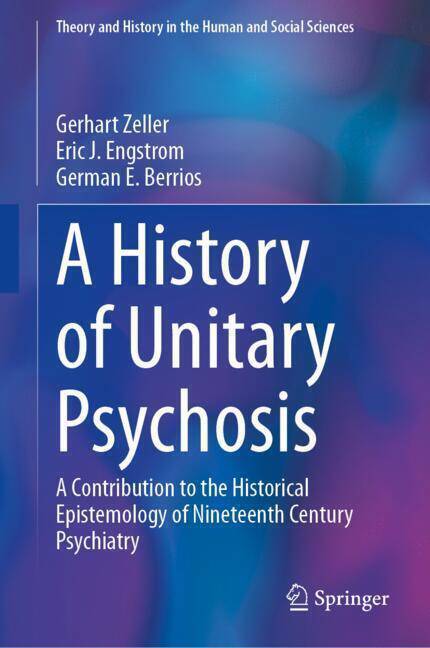
Bedankt voor het vertrouwen het afgelopen jaar! Om jou te bedanken bieden we GRATIS verzending (in België) aan op alles gedurende de hele maand januari.
- Afhalen na 1 uur in een winkel met voorraad
- In januari gratis thuislevering in België
- Ruim aanbod met 7 miljoen producten
Bedankt voor het vertrouwen het afgelopen jaar! Om jou te bedanken bieden we GRATIS verzending (in België) aan op alles gedurende de hele maand januari.
- Afhalen na 1 uur in een winkel met voorraad
- In januari gratis thuislevering in België
- Ruim aanbod met 7 miljoen producten
Zoeken
A History of 'Unitary Psychosis'
A Contribution to the Historical Epistemology of Nineteenth Century Psychiatry
Gerhart Zeller, Eric J Engstrom, German E Berrios
€ 259,45
+ 518 punten
Omschrijving
Gerhart Zeller's prize-winning 1961 study of the history of the concept of unitary psychosis has never before been published in German or English. To date, the manuscript remains by far the best historical account of the early development of the concept in Germany. The editors' introduction analyzes Zeller's monograph on three temporal levels. First, as a rediscovered original contribution to historical scholarship on nineteenth century psychiatric classification. Second, as an historical document in its own right, situated on the threshold between the murderous atrocities of the Holocaust and the psychiatric reforms of the 1970s and '80s (Psychiatrie-Enquête). Third, as a unique contribution to post-Neo-Kraepelinian discourse and to the critiques of contemporary psychiatric nosologies (DSM) and research agendas (RDoC). In helping to elucidate the historical evolution of dimensional approaches to psychiatric classification, the monograph is likely to resonate within wider current biomedical trends toward personalized medicine and molecular diagnostics, and to find a readership among psychiatric practitioners and historians alike.
Specificaties
Betrokkenen
- Auteur(s):
- Uitgeverij:
Inhoud
- Aantal bladzijden:
- 198
- Taal:
- Engels
- Reeks:
Eigenschappen
- Productcode (EAN):
- 9783031901812
- Verschijningsdatum:
- 5/06/2025
- Uitvoering:
- Hardcover
- Formaat:
- Genaaid
- Afmetingen:
- 156 mm x 234 mm
- Gewicht:
- 471 g

Alleen bij Standaard Boekhandel
+ 518 punten op je klantenkaart van Standaard Boekhandel
Beoordelingen
We publiceren alleen reviews die voldoen aan de voorwaarden voor reviews. Bekijk onze voorwaarden voor reviews.









